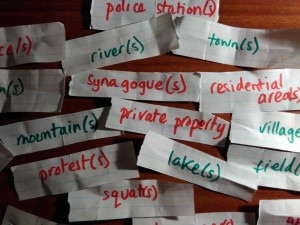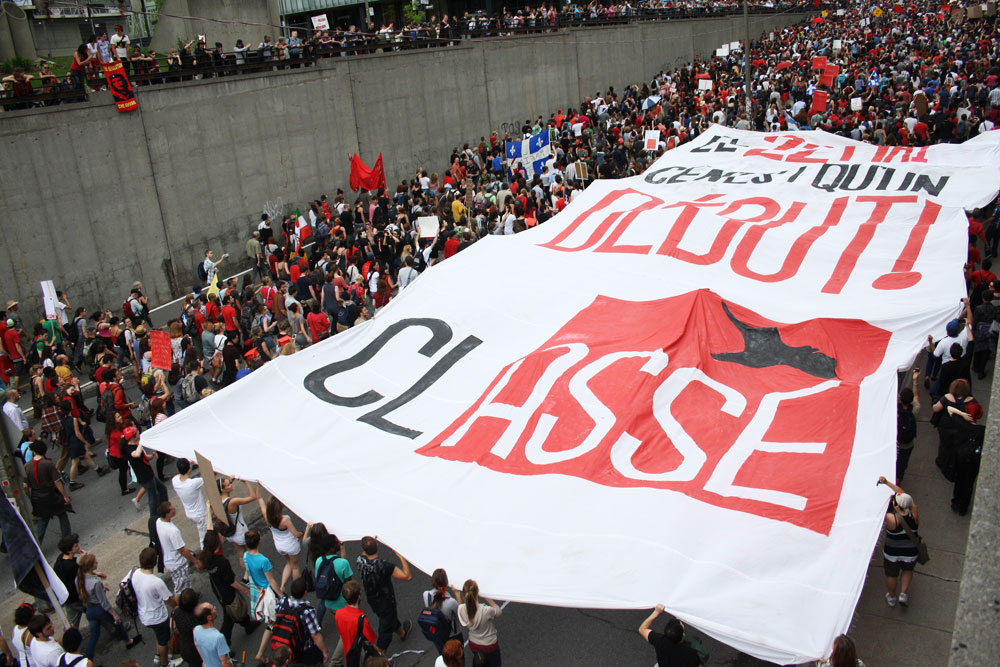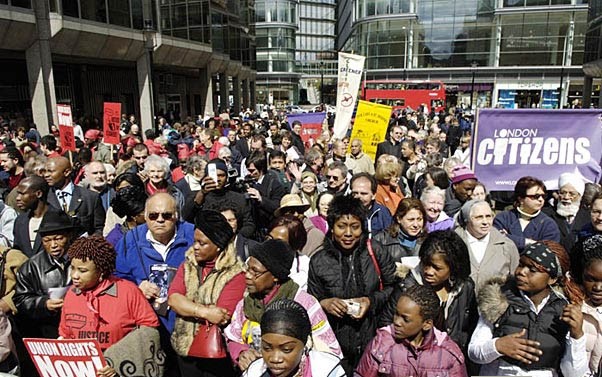Bea Hughes, Birmingham Plan C
From November to July last year members of IWW (Industrial Workers of the World) s and Plan C partnered with Kurds to form an English Language teaching initiative. The project came about after members of IWW showed documentaries on the social revolution in Rojava and held discussions on texts on democratic confederalism. At these events IWW members made contact with some of the Birmingham Kurdish community. They were asked as a community how could they best be supported by members of IWW and Plan C at large, not only as an act of practical solidarity, but as political solidarity for the ongoing democratic confederalist experiment in the region of Rojava. The request was for English lessons, free of charge, that would provide useful and necessary vocabulary to help navigate the cultural, bureaucratic and hostile political climate of the UK, as well as arming the students with tools for workplace organising and against exploitation.
Unsurprisingly, the provision of ESOL (English for Speakers of Other Languages) programs has been cut drastically in the past few years. Spending has dropped from £212m in 2008-9 to an estimated £95m in 2014-15 which makes absolutely no sense given the current border crisis and numbers of people coming to the UK. Although none of us are professional teachers of ESOL, many of us do have experience teaching or tutoring English.
From the beginning, one of the key components of the project was the provision of childcare by members of Plan C. This was important in terms of making sure that parents did not incur further economic or logistical inconveniences through attending the lessons. It was also fun and interesting for Plan C and the children who took a liking to some of us!
Although the project was extremely worthwhile, we could have worked towards a more democratic teaching approach. From the outset the teachers decided on the modules to be taught, rather than gathering as much information from the prospective students about what they wanted to learn. I think this was because we felt we knew the kinds of themes that would be useful, interesting and enjoyable for the students to learn. For future possible modules we could easily take the time beforehand to ask the students what they would like to learn moving forward and then design the modules from there.
Some of us did ask informally for verbal feedback from students post hoc, and then adapted and improved content and teaching methods according to their requests. Before the start of the project, the students asked that we teach a lesson on the process of form-filling so we made sure a lesson was taught on this. Another request was for lessons to always include as much conversation practice as possible. This feedback process could be developed in a more structured way perhaps through allowing them to write down (in English) their thoughts on the lessons at the end of a set of modules. However, it is unclear at this point if the idea of asking for feedback is useful or culturally appropriate as the students seem to be confused by the idea of feedback, instead accepting our judgement and expecting us to know what is best as teachers, albeit amateur ones.
As for content, the syllabus we taught was decided at infrequent meetings, where we split up the different themes into ‘modules’, with one module=one lesson, taught by two people in a teaching pair. That teaching pair were then responsible for arranging with one another to meet up beforehand and prepare (maximum 3-4 hours) their lesson. Usually, this consisted of a slide show presentation (with as much media as you dare), a handout and any props. Obviously the methods used amongst us as teachers varied but in general our lessons involved the teaching of vocabulary, sentence structure and grammar, and listening, reading, writing and speaking practice. This information was then taught variously through role play conversations, example sentences, images, songs, games and video. In terms of content, it was tricky to pitch the difficulty correctly as the classes were of very mixed ability which meant that sometimes after a class we were unsure if each student benefited equally. Where needed, we tried to provide extra support to individuals on tasks given in class.
We organised the materials for the modules through uploading them to a cloud-based file-sharing service so everyone could view and use the materials. Some of the modules we taught included: health, workplace organising, comedy, cooking and transport and culture. As these modules show, there was a broad range of content taught that aimed to make the lessons dynamic and enjoyable for all involved.
Timetable-wise, we held the lessons once a week on a Sunday afternoon, consisting of two two hour lessons between 4.30 and 8.30. A second lesson between 6.30 and 8.30 was supposed to be introduced in response to new interest from other migrants, teaching the modules we taught first time round once again. Unfortunately we were not able to run this second lesson due to a combination of migrants being moved around the country, having to take jobs with erratic working hours and communication difficulties between themselves and English speakers.
Lastly, there was a strong social element to this project, as there should be in any political activity, where we collectively organised film screenings, trips to the pub, and family-friendly meals. We are often invited to join in with Kurdish celebrations such as Kurdish New Year (Newroz) in March.
The project lasted until last July, drawing to a close for a number of reasons. One reason was because some of the students’ abilities exceeded our level of teaching, with them moving on to more advanced or one-to-one tutoring or services provided by the state. Another was due to the group of teachers who were mainly friends and comrades not having the capacity to up-scale the teaching programme in order to become public-facing and attract more newer students to replace those who had moved on. Overall, the general feeling was that the provision served its purpose to a particular group of Kurdish comrades at a particular time. We learnt a lot about how to organise and plan this kind of project and would feel confident implementing something similar in the future to help out other migrants in Birmingham.
We have produced extensive resources and lesson plans for our teaching modules. If anyone is considering teaching ESOL then don’t hesitate to ask Birmingham Plan C members for these – birmingham@weareplanc.org.



